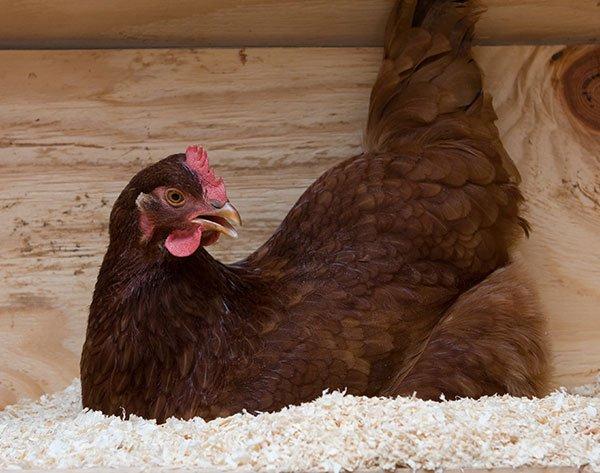Home, Sweet Coop
Whether you've decided on having some backyard chickens or a small flock of turkeys, one of your biggest considerations is where and how to house them.
There are a lot of coop options out there, some basic, others highly elaborate, but the key is comfort. Because when your flock has comfortable, healthy surroundings, they'll be more productive.
What do you need to consider when it comes to buying or building a coop for your fowl? Three things: size, bedding and cleaning. Here's what you need to know.
Run, chicken, run!
How big your coop should be depends entirely on what type of birds you're raising and how many of them you have. You also need to consider how much outdoor space, or how big a run, you will need for your poultry.
Chickens, for example need about two to three square feet of coop space for each bird if they have access to an outdoor run. If they don't have outdoor access, five to 10 feet per bird is recommended. Turkeys, geese and some ducks are bigger than chickens so need more space.
This table will help you pencil out how much indoor and outdoor space you need for chickens and turkeys. If you're raising geese, ducks or specialty birds, visit your local UFA store for some expert advice.

Bedding for the birds
Now that your coop and run are up, you need to get some bedding material in there. Bedding has a couple of key functions:
- It is an insulating layer between the floor of the coop and your birds' feet.
- It absorbs waste, which makes coop cleaning easier.
You can choose from a few bedding materials including wood shavings, straw, even recycled paper. The key is that it's comfortable for the birds and absorbent.
Another thing to keep in mind is not all bedding material is created equal, even within the same bedding type.
Wood shavings. Premium products have larger shavings and are dust-free, which is ideal for chicks sensitive respiratory systems. Standard wood shavings are a bit smaller and are a more economical choice as birds grow larger.
Straw. Straw can be very dusty, which isn't good for birds of any age. But the more important consideration with straw is that it needs to be completely dry – any moisture could cause mould or bacteria and create an unhealthy environment. You can avoid both issues by purchasing processed straw, which is both dry and dust-free.
Mucking out
Timely coop cleaning is essential to flock health. Here are some tips:
Periodic cleaning. Replace bedding when there is a noticeable accumulation bird poop. This may be several times a year if birds have no outdoor access, less if they do.
Bad smells. It's the ammonia in bird droppings where most of the unpleasant odour comes from. If odour issues are a problem between cleanings, you can use products containing acidified diatomaceous earth, that will help neutralize the ammonia.
Deep cleaning. Poultry coops should be deep cleaned once or twice a year – the best times to do it are just after spring thaw and/or just before fall freeze-up.
Start by removing everything from the coop, including all bedding plus drinking and feeding equipment. Wash the coop down thoroughly with a disinfectant cleaner that will kill viruses, bacteria and fungi. Scrub down the drinking and feeding equipment before replacing, and finish off with new fresh bedding.
We have coops and fencing!
Whether you're looking to buy your first coop, build your first bird run or expand what you've already got, UFA has everything you need.
There's a lot to think about when it comes to housing poultry and we have a lot of information to share. Come in and talk to your local UFA customer service and sales representative and let us help you make sure your birds have a great place to call home, sweet coop!
Space Chart
| Chickens (Per Bird) | ||
|---|---|---|
| |
Weeks of Age | SqFt. of Floor Space |
| Brooding | 0 - 4 | ½ |
| Growing | 4-12 | 1 |
| Roasters | 8-16 | 2 |
| Replacements | 8-12 | 2 |
| |
12-21 | 2½ - 3 |
| Leghorn type Layers | 21+ | 2½ - 3 |
| Dual-purpose Layers | 21+ | 3 - 3½ |
| Turkeys (Per Bird) | ||
|---|---|---|
| |
Weeks of Age | SqFt. of Floor Space |
| Brooding | 0-8 | 1 |
| Grow-out | 8-18 | 2 1/2 |
| Finishing Hens | 16-20 | 3 |
| Finishing Toms | 16-24 | 5 |
| Exterior Yards/Runs | ||
|---|---|---|
| |
Weeks of Age | SqFt. of Floor Space |
| Chickens | Mature | 10 |
| Turkeys | Mature | 20 |